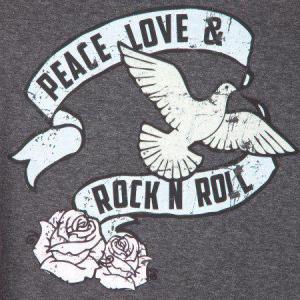George Duke (January 12, 1946 – August 5, 2013) was an American musician, known as a keyboard pioneer, composer, singer and producer in both jazz and popular mainstream musical genres. He had worked with numerous acclaimed artists as arranger, music director, writer and co-writer, record producer and professor of music. He first made a name for himself with the album The Jean-Luc Ponty Experience with the George Duke Trio. He was known primarily for thirty-odd solo albums as well as for his collaborations with other musicians, particularly Frank Zappa.

The Jean-Luc Ponty Experience with The George Duke Trio album was recorded live in Hollywood, California in mid-September, 1969. A number of Jazz musicians were experimenting with the jazz-rock fusion that would become so popular in the 1970s, but Jean-Luc Ponty is one of the earliest to get it down on vinyl. Ponty was inspired by Miles Davis to explore this new fusion form, and is considered the first significant Jazz musician to record on the electric violin. Later, in the 1970s, he pioneered the use of 5 & 6-string violins and was the first to combine the violin with MIDI, distortion boxes, phase shifters, and wah-wah pedals.
Let 's start with some albuns of this initial phase of GD...
The Jean-Luc Ponty Experience with The George Duke Trio is a Jazz album released in 1969 by Jean-Luc Ponty on World Pacific Jazz in the US, and is considered to be one of the earliest fusion jazz albums.
Beginning in 1967 Duke experimented further with jazz fusion, playing and recording with violinist Jean-Luc Ponty, as well as performing with the Don Ellis Orchestra, and Cannonball Adderley's band, while he acquainted himself with Frank Zappa. Duke appeared on a number of Frank Zappa's albums through the 1970s.
One of the best albuns of this phase is:

You Can't Do That on Stage Anymore, Vol. 2 is a live album by Frank Zappa. Despite the subtitle "The Helsinki Concert", the album is not one complete concert, but was, in fact, assembled from two (and possibly three) different concerts performed in Helsinki in 1974. The working title for this album was The Helsinki Tapes, a title more accurately reflecting the fact that the album was composed of performances from more than one show. The track listing is similar to that of Roxy & Elsewhere (1974), as are the core band personnel. The performance includes a double-speed version of "Village of the Sun", sandwiched between a later version of "RDNZL", the first being recorded in 1972, and "Echidna's Arf (Of You)", and "Montana (Whipping Floss)" — a spontaneously rewritten version of "Montana", following an audience member's request for The Allman Brothers Band's "Whipping Post". The guitar solo in the One Size Fits All version of "Inca Roads" is an edited extract of the solo presented here. Zappa has considered these performances as some of the best in his career. This particular line-up was one of his favorites.
The Band:
Frank Zappa – lead guitar, vocals
Napoleon Murphy Brock – saxophone, flute, vocals
George Duke – keyboards, vocals
Ruth Underwood – percussion
Tom Fowler – bass guitar
Chester Thompson – drums
The 70’s were filled with musical experimentation with great musicians as Billy Cobhan and Stanley Clarke. In 1973, George rejoined Zappa and brought Jean-Luc Ponty with him. That band stayed together for the next three years, until Duke left to join forces with drummer Billy Cobham. Together, they formed a powerhouse jazz fusion unit even more popular and influential than the earlier Duke/Ponty group.
Three great records of these experimentations could be represented by:
Cannonball Adderley (Alto & Soprano saxophone)
Nat Adderley (Cornet)
Roy Mac Curdy (Drums)
Walter Booker (bass)
George Duke (Piano, electric piano)
Airto Moreira (percussion)
George Duke became a solo artist in 1976, and enjoyed success with a series of fusion-oriented LP's such as his debut CBS LP, From Me To You. In 1978, the funk-flavored sound of the gold album Reach For It propelled George Duke into the upper reaches of the charts, and from small clubs to large arenas.
My favorites solo albums are:
Line-up/Musicians
Acoustic Bass, Electric Bass – John Heard
Drums – Ndugu
Guitar – Obdewl'l X
Keyboards – George Duke
Percussion – Airto, Ndugu
Synthesizer [Bass] – George Duke
Vocals – George Duke
Duke was nominated for a Grammy as Best Contemporary Jazz Performance for After Hours in 1999. By popular vote, Duke was inducted into The SoulMusic Hall Of Fame at SoulMusic.com in December 2012.
Duke died August 5, 2013 in Los Angeles from chronic lymphocytic leukemia. He was 67 and is survived by his sons, Rashid and John.
THANKS DUKE!!!!
More George Duke:
The Capricorn in Reflection
 A Brazilian Love Affair
A Brazilian Love Affair

George Duke Biography (
http://www.georgeduke.com/biography.html )










































.JPG)




















































































Grande homenagem, muito bom mesmo. Obrigado
ResponderExcluircould you please repost Billy Cobham & George Duke Live on Tour Europe 1976 (Link is dead http://www.4shared.com/archive/1DaNnCoI/Bill2Du.html)?
ResponderExcluirCould also repost this: King Kong - Jean-Luc Ponty Plays the Music of Frank Zappa (1973)?
ResponderExcluir@Cri, thanks a lot to inform. It's DONE!!!! Enjoy!!!
ResponderExcluir